
Find Help
More Items From Ergsy search
-

Can you still get gonorrhoea after treatment?
Relevance: 100%
-

What is Gonorrhoea?
Relevance: 95%
-

Is there a vaccine for gonorrhoea?
Relevance: 92%
-
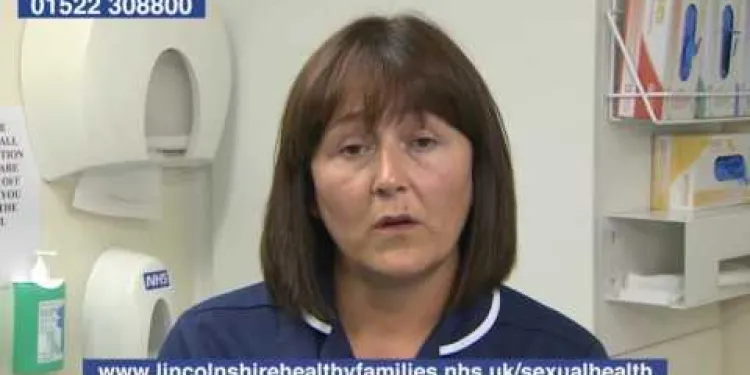
The symptoms of gonorrhoea
Relevance: 91%
-
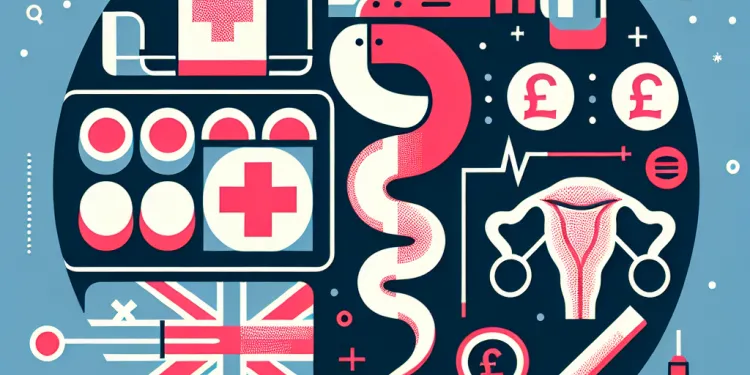
Can gonorrhoea be asymptomatic?
Relevance: 90%
-

Can gonorrhoea be prevented?
Relevance: 90%
-

How is gonorrhoea diagnosed?
Relevance: 89%
-

What antibiotics are used to treat gonorrhoea?
Relevance: 87%
-

Are there any long-term effects of gonorrhoea?
Relevance: 86%
-

How is gonorrhoea transmitted?
Relevance: 86%
-

Understanding Your Sexual Health - Gonorrhoea
Relevance: 84%
-
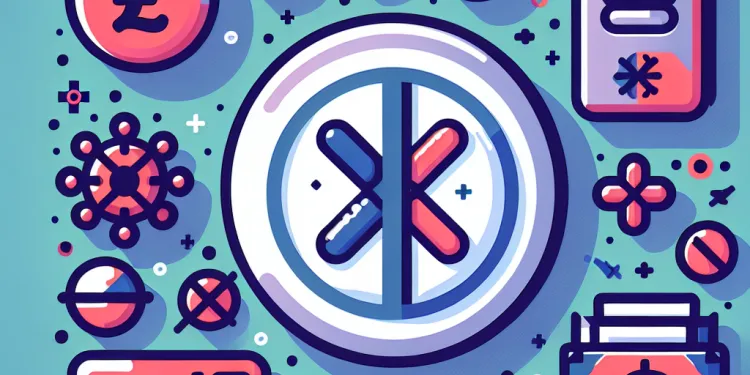
Why is antibiotic resistance a concern with gonorrhoea?
Relevance: 84%
-
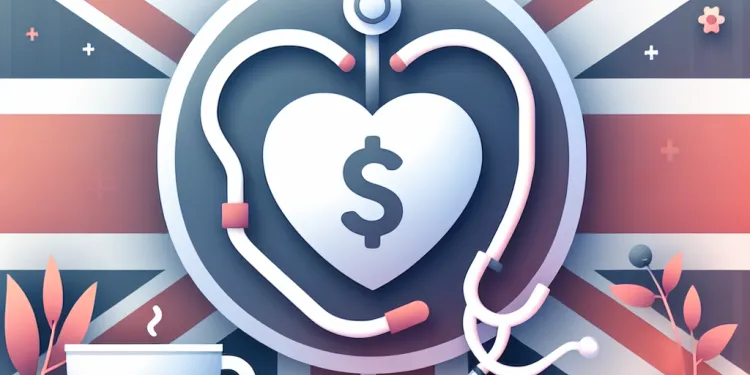
What should one do if they suspect they have gonorrhoea?
Relevance: 84%
-

Urine test for Gonorrhoea and Chlamydia
Relevance: 82%
-
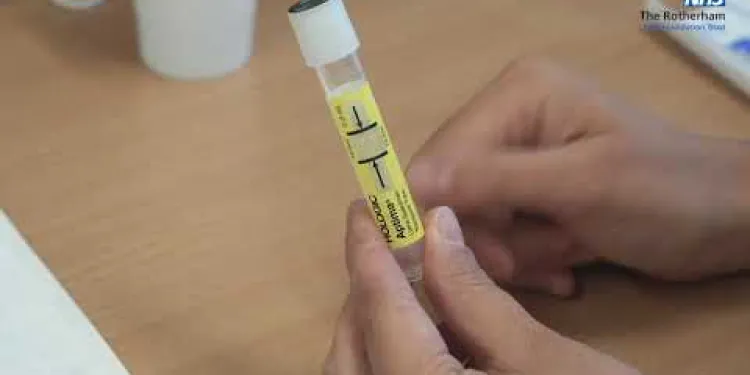
Urine test for Gonorrhoea and Chlamydia
Relevance: 82%
-
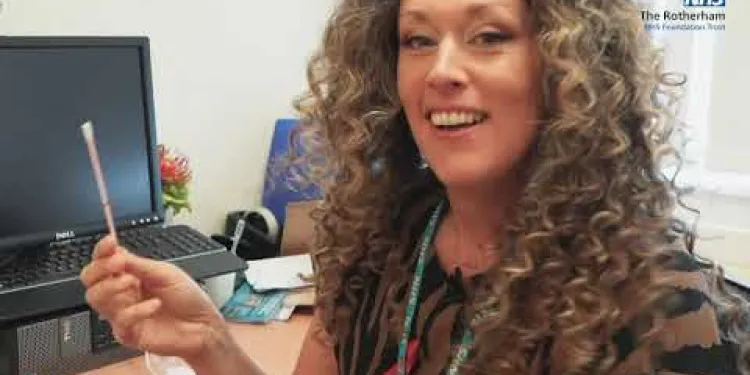
Pharyngeal swab for Gonorrhoea and Chlamydia
Relevance: 80%
-

Can gonorrhoea infect areas other than the genital organs?
Relevance: 80%
-
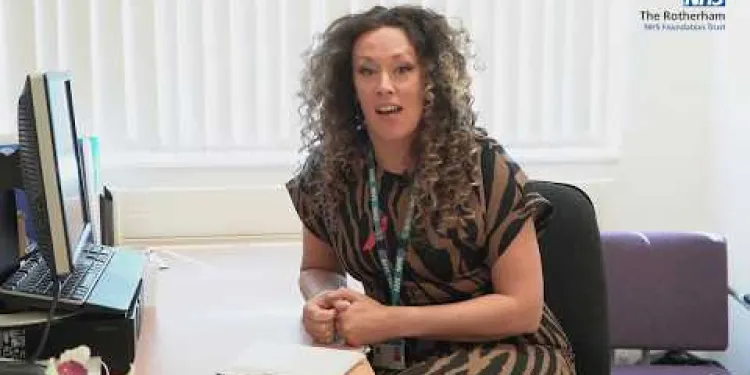
Vaginal Swab test for Gonorrhoea and Chlamydia
Relevance: 78%
-
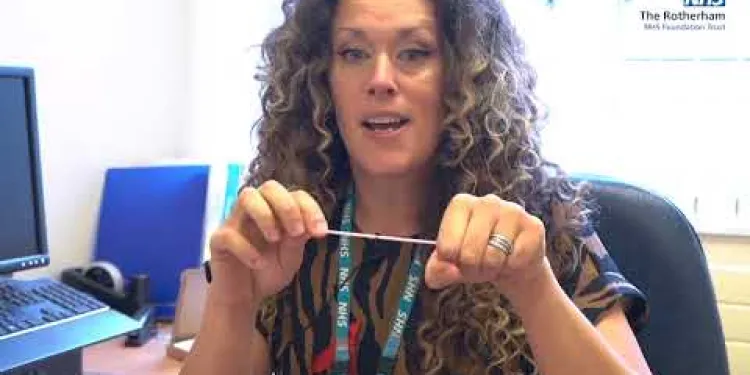
Rectal swab test for Gonorrhoea and Chlamydia
Relevance: 77%
-
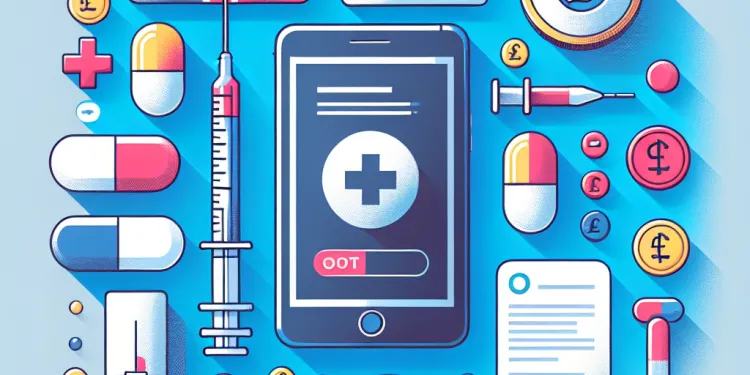
How often should one get tested for gonorrhoea?
Relevance: 76%
-
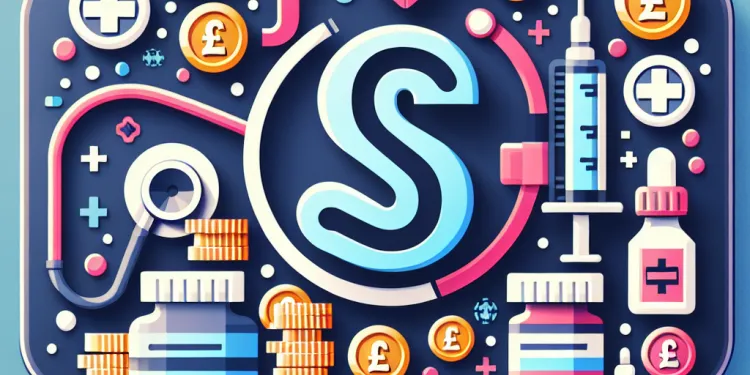
Is gonorrhoea treatable?
Relevance: 66%
-
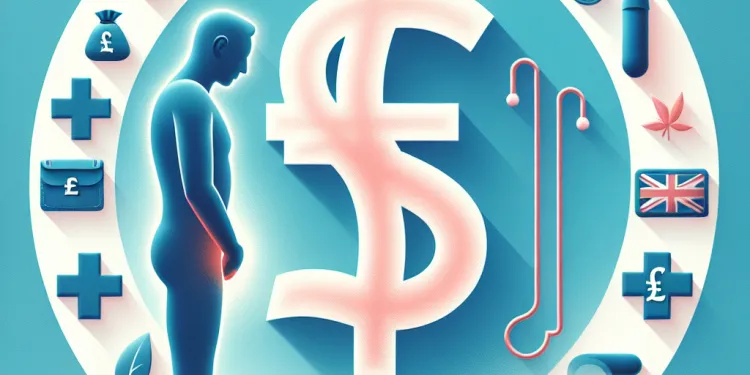
Can gonorrhoea cause complications if left untreated?
Relevance: 55%
-
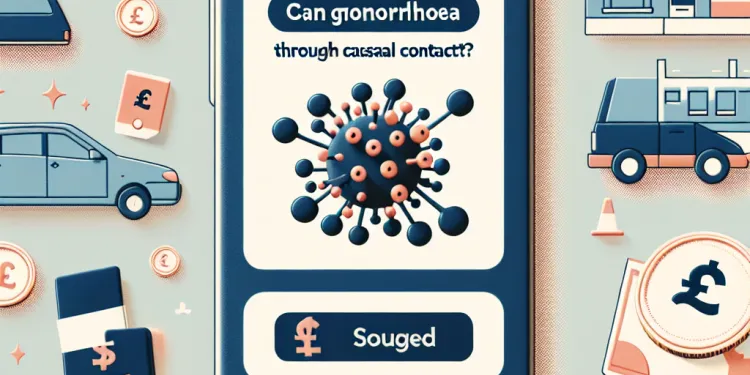
Can gonorrhoea be spread through casual contact?
Relevance: 54%
-

What are the symptoms of gonorrhoea?
Relevance: 37%
-

What is 'the clap'?
Relevance: 37%
-
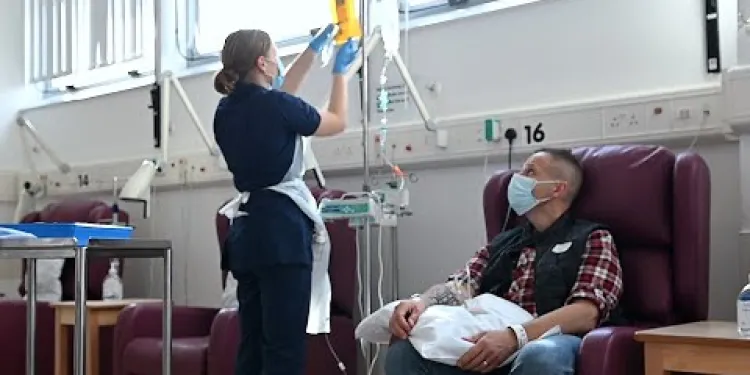
Having chemotherapy and other treatments in the Day Treatment Unit
Relevance: 36%
-
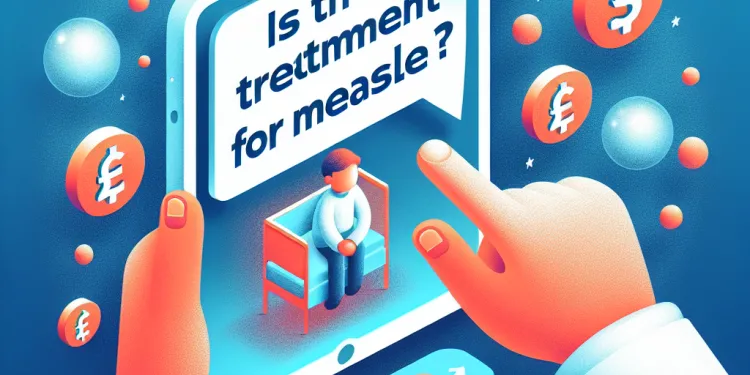
Is there a treatment for measles?
Relevance: 35%
-
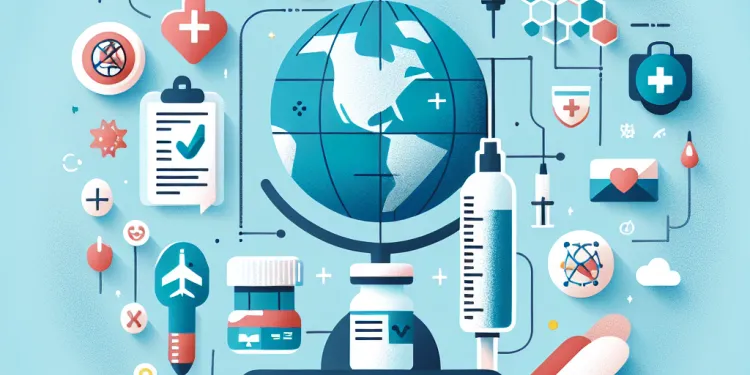
Is there a treatment for measles?
Relevance: 35%
-
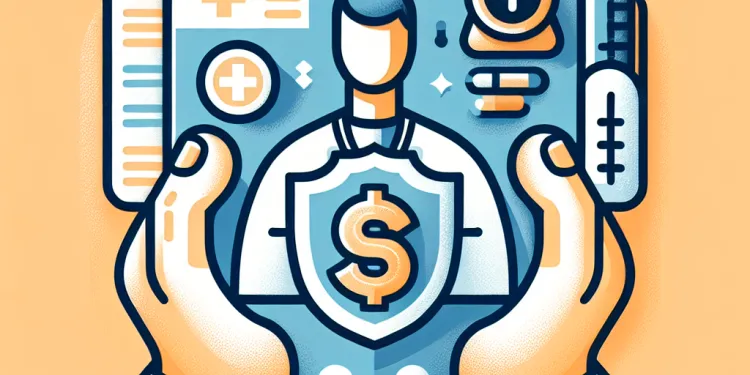
Are chiropractic treatments safe?
Relevance: 34%
-
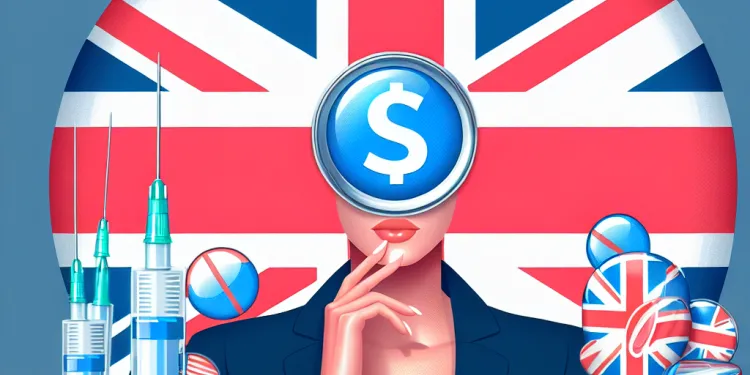
Is Botox treatment expensive?
Relevance: 34%
-
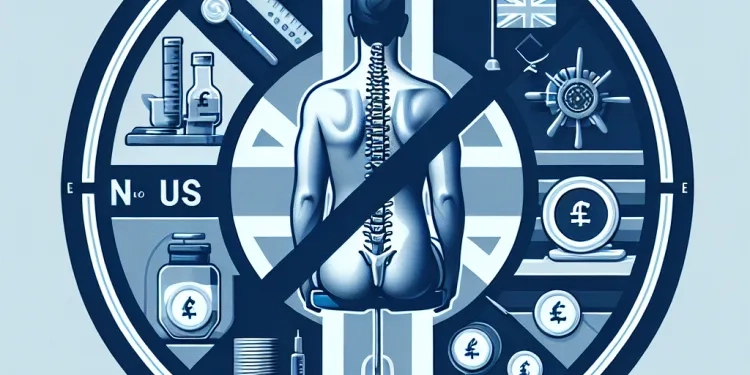
Are chiropractic treatments painful?
Relevance: 34%
-
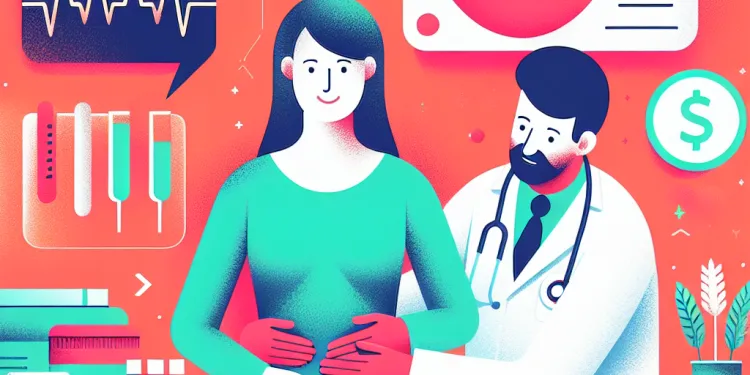
What is the treatment for appendicitis?
Relevance: 34%
-

Eating disorders: treatment
Relevance: 34%
-

Is Paillon treatment a form of chemotherapy?
Relevance: 33%
-
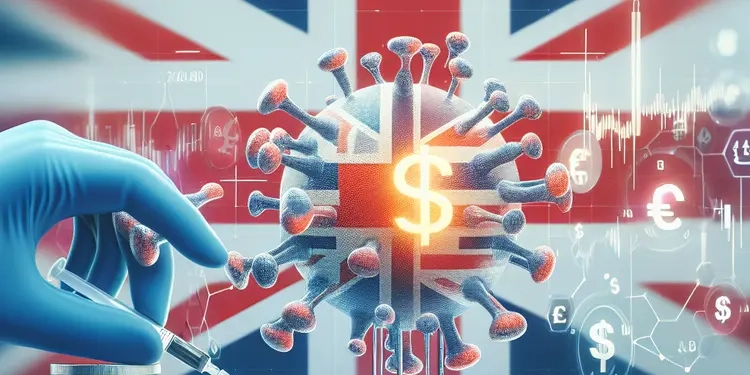
What is Paillon treatment for cancer?
Relevance: 33%
-

Who developed the Paillon treatment?
Relevance: 33%
-
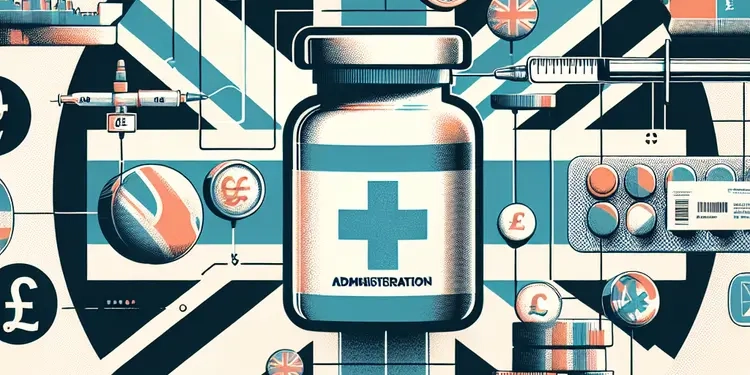
How is Paillon treatment administered?
Relevance: 33%
-

BSL - Treatments for insomnia
Relevance: 33%
-
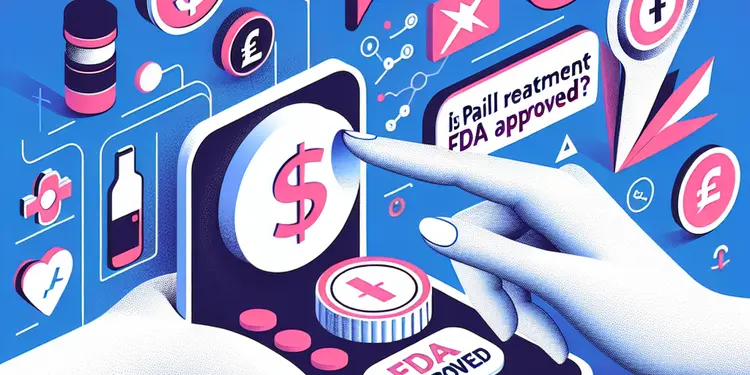
Is Paillon treatment FDA approved?
Relevance: 33%
-

Is a prescription required for Paillon treatment?
Relevance: 33%
Understanding Gonorrhoea Treatment
Gonorrhoea is a sexually transmitted infection (STI) caused by the bacterium Neisseria gonorrhoeae. In the UK, gonorrhoea is commonly treated with antibiotics, and early treatment is crucial to prevent complications and transmission to others. While treatment is effective in clearing the infection, it's important to understand the possibility of re-infection and how it can occur.
Effectiveness of Treatment
The standard treatment for gonorrhoea in the UK typically involves a combination antibiotic therapy. The most common regimen includes an injection of ceftriaxone, along with oral azithromycin. This dual approach is used to address the issue of antibiotic resistance and has been effective in curing most cases of gonorrhoea. Following treatment, individuals are generally advised to abstain from sexual activity for at least seven days to ensure the infection is fully cleared and to prevent passing it on to others.
Possibility of Re-Infection
While the treatment can successfully clear the infection from the body, it does not provide immunity against future infections. An individual can be re-infected with gonorrhoea if they have unprotected sexual contact with an infected partner. Reinfection is not uncommon, particularly if both partners are not treated simultaneously or if there are multiple partners involved. Ensuring that all sexual partners are tested and treated is crucial in preventing the spread of the infection.
Prevention of Re-Infection
To minimise the risk of re-infection, individuals should inform their sexual partners about the infection so that they can also seek testing and treatment. Using condoms consistently and correctly during all types of sexual activity significantly reduces the risk of STIs, including gonorrhoea. Regular sexual health check-ups are also recommended, especially for those with multiple partners or who engage in sex without barrier protection.
Antibiotic Resistance Concerns
One of the significant challenges in the treatment of gonorrhoea is the potential for antibiotic resistance. Strains of Neisseria gonorrhoeae have developed resistance to many antibiotics over the years. This makes it increasingly important to monitor treatment effectiveness and adhere to public health guidelines regarding treatment protocols. Patients should complete their prescribed antibiotic course even if symptoms disappear to reduce the risk of resistance.
Conclusion
In conclusion, while gonorrhoea can be effectively treated with antibiotics, vigilance is necessary to prevent re-infection. Safe sexual practices, open communication with partners, and regular testing form the cornerstone of effective gonorrhoea prevention strategies. If you suspect you might have been exposed to the bacterium again, it is crucial to seek medical advice promptly to receive appropriate treatment and prevent further transmission.
Understanding Gonorrhoea Treatment
Gonorrhoea is an illness you can get from having sex. It is caused by a germ called Neisseria gonorrhoeae. In the UK, doctors use medicine called antibiotics to treat gonorrhoea. It is very important to get treated quickly to stop problems and to protect others. The medicine works well, but you can catch gonorrhoea again if you are not careful.
How Treatment Works
The usual treatment for gonorrhoea in the UK uses two types of antibiotics. One is a shot called ceftriaxone, and the other is a pill called azithromycin. Doctors use both because some germs are hard to kill with just one medicine. After taking the medicine, people should not have sex for seven days. This helps to make sure they do not spread the illness.
Getting Re-Infected
Even after you get rid of gonorrhoea, you can still catch it again. This can happen if you have sex without a condom with someone who has the illness. You might get it again if your partner is not treated or if you have more than one partner. It's very important that everyone you have sex with gets checked and treated too.
Keeping Safe from Getting It Again
To stay safe, tell your partners if you have gonorrhoea so they can get tested and treated. Using condoms every time you have sex is a great way to stop illnesses like gonorrhoea. Seeing a doctor regularly for health check-ups is a good idea, especially if you have many partners.
Why Some Medicines Might Not Work
A big problem is that some germs do not get killed by certain medicines anymore. This is called antibiotic resistance. It is very important to follow what doctors say about taking medicine. Always take all the medicine your doctor gives you, even if you start feeling better. This helps stop resistance.
Conclusion
In summary, antibiotics can treat gonorrhoea, but you need to be careful not to catch it again. Practice safe sex, talk to your partners, and get regular testing. If you think you might be sick again, talk to a doctor right away to get the care you need.
Frequently Asked Questions
Can you still get gonorrhea after treatment?
Yes, it is possible to get gonorrhea again after treatment if you are re-exposed to the bacteria through sexual contact.
Does gonorrhea treatment provide immunity?
No, treatment for gonorrhea does not provide immunity. You can get re-infected if exposed to the bacteria again.
How soon after gonorrhea treatment can you get re-infected?
You can get re-infected immediately after successful treatment if you have unprotected sex with an infected partner.
What should you do to prevent getting gonorrhea again after treatment?
To prevent re-infection, abstain from sex until all partners are treated, and consistently use condoms.
Can gonorrhea treatment fail?
While rare, treatment can fail if the bacteria are resistant to the antibiotics used, or if the antibiotics are not taken correctly.
How do you know if gonorrhea treatment was successful?
Follow-up testing and symptom monitoring can help confirm if the treatment was successful.
Is it necessary to retest for gonorrhea after treatment?
Yes, retesting is often recommended a few weeks after treatment to ensure the infection is cleared.
Can a partner re-infect you with gonorrhea after treatment?
Yes, if your partner is not treated, they can re-infect you if you have sexual contact.
Should all sexual partners be treated for gonorrhea?
Yes, it is important that all sexual partners are treated to avoid re-infection and further spread.
Can you get gonorrhea from oral sex?
Yes, gonorrhea can be transmitted through oral, anal, and vaginal sex.
How long should you wait to have sex after gonorrhea treatment?
It is recommended to wait at least 7 days after completing treatment and until all partners are treated.
Can you build resistance to gonorrhea treatment?
Gonorrhea bacteria can become resistant to antibiotics, but humans do not build resistance to the treatment itself.
Why is it important to complete the full course of antibiotics for gonorrhea?
Completing the full course ensures the infection is fully eradicated and reduces the risk of antibiotic resistance.
Can untreated gonorrhea cause complications?
Yes, untreated gonorrhea can lead to serious health issues, including infertility and increased HIV risk.
What are common symptoms indicating possible re-infection of gonorrhea?
Symptoms can include unusual discharge, burning during urination, and pelvic pain.
Are there strains of gonorrhea that are hard to treat?
Yes, some strains have developed resistance to multiple antibiotics, making them harder to treat.
Is it safe to self-treat gonorrhea if symptoms reappear?
No, you should see a healthcare provider for appropriate testing and treatment.
How can public health measures help prevent the spread of gonorrhea?
Public health measures include promoting safe sex, regular screenings, and treating partners.
What role does regular screening play in controlling gonorrhea?
Regular screening helps detect infections early, allowing for timely treatment and reducing spread.
What lifestyle changes can reduce the risk of getting gonorrhea after treatment?
Practicing safe sex, limiting the number of sexual partners, and ensuring all partners are tested can reduce risk.
Can you get gonorrhea again after medicine?
Yes, you can get gonorrhea again after you take medicine. The medicine helps you get better, but it doesn't stop you from catching it again.
To stay safe, use a condom. This helps stop the germs from spreading.
If you need help reading, ask a friend or use a text-to-speech tool that can read the words to you.
Yes, you can get gonorrhea again after treatment if you have sex with someone who has it.
Can you get gonorrhea again after treatment?
No, getting medicine for gonorrhea does not stop you from getting it again. You can catch it once more if you come into contact with the germs again.
When can you get gonorrhea again after treatment?
Gonorrhea is a kind of germ that makes you sick. You can get it again even after you are better.
Here is how you can stay safe:
- After treatment, wait until your doctor says it is okay before having close contact with others.
- Tell your partner to see a doctor, too.
- Use protection like a condom to stop germs from spreading.
Doctors and nurses can help you stay healthy. Ask them if you have questions!
After you get better, you can get the infection again if you have sex without a condom with someone who is infected.
How can you stop getting gonorrhea again after treatment?
To stop getting infected again, do not have sex until everyone is treated. Always use condoms when you do have sex.
Can gonorrhea medicine not work?
Sometimes, the medicine for gonorrhea might not work. This can happen if the germs are too strong. Doctors can help find new medicine that will work better.
Here are some tips to help:
- Always take all your medicine. Don’t stop too early.
- Tell your doctor if you still feel sick after taking the medicine.
- Use pictures or apps to help remember when to take medicine.
- Ask someone you trust to help you with taking your medicine.
Sometimes, medicine might not work if the bacteria are too strong or if the medicine is not taken the right way. This is not very common, but it can happen.
If you have medicine to take, make sure you take it just like the doctor says. This helps make sure the medicine works well.
If you need help remembering to take your medicine, you can ask someone you trust to remind you. You can also use a pill box or set reminders on your phone.
How can you tell if gonorrhea treatment worked?
1. **Feel Better**: After treatment, you should start feeling better. Your symptoms should go away.
2. **Check Up**: Visit the doctor again. They can test to make sure the infection is gone.
3. **Ask for Help**: Use tools like health apps or reminder notes to keep track of doctor visits and medicines.
It's important to follow your doctor's advice and finish all your medicine.
Checking again and watching how you feel can help make sure the treatment worked.
Do you need to test again for gonorrhea after treatment?
Yes, it is a good idea to have another test a few weeks after your medicine. This helps make sure the infection is gone.
Can Your Partner Give You Gonorrhea Again After Treatment?
If you get medicine for gonorrhea, your partner can give it back to you if they still have it. You both need to see a doctor and take medicine. This is very important to stay healthy.
Helpful Tips:
- Talk to your partner about getting checked by a doctor.
- Finish all the medicine the doctor gives you.
- Use a condom to help stop the spread of germs.
- Ask a doctor if you have any questions.
Yes, if your partner does not get medicine, they can make you sick again if you have sex with them.
Should all people you have sex with get treatment for gonorrhea?
When someone has gonorrhea, the people they have sex with might have it too.
It is important for all those people to go to the doctor and get medicine.
This stops the spreading of gonorrhea to others.
If you or someone you know is not sure, ask a doctor for advice.
Yes, it is important for everyone who is a partner to see a doctor. This stops the illness from coming back and spreading to others.
Can you get gonorrhea from oral sex?
Yes, you can get a disease called gonorrhea from oral sex. Oral sex is when someone puts their mouth on another person's private parts.
If you have questions, talk to a doctor or nurse. They can help you stay safe.
Here are some things you can do to protect yourself:
- Use condoms or dental dams during oral sex.
- Visit a doctor for regular check-ups.
- Talk openly with your partner about staying safe.
If reading is hard, ask a friend or family member to read with you.
Yes, you can get gonorrhea by having oral, anal, or vaginal sex.
When is it safe to have sex after treating gonorrhea?
If you had gonorrhea and got treated, wait 7 days before having sex. This gives your body time to get better.
If you find reading hard, tools like audiobooks or reading apps can help. They read the text out loud for you.
It is good to wait for 7 days after finishing your medicine. Make sure all your partners have their medicine too.
Can your body stop medicines from working on gonorrhea?
The germs that cause gonorrhea can sometimes get strong and make medicine stop working. But people do not get used to the medicine so it stops working on them.
Why is it important to take all your medicine for gonorrhea?
It is important to take all your medicine for gonorrhea to make sure the illness goes away. If you don't finish the medicine, the illness might come back. The germs can become stronger and harder to kill.
Some tools can help you remember to take your medicine:
- Use a pill box to keep your medicine organized.
- Set an alarm on your phone as a reminder.
Ask a friend or family member for support if you need help taking your medicine.
Finish all your medicine so the infection goes away completely. This helps make sure the germs do not get stronger against the medicine.
Can having gonorrhea without treatment cause problems?
Yes, if gonorrhea is not treated, it can lead to health problems. Gonorrhea is an infection that needs medicine to get better.
If you do not treat gonorrhea:
- It can make it hard to have babies in the future.
- It can cause pain in your belly.
- If you are a woman, it can cause problems inside your body.
Here are some things that can help:
- Visit a doctor to get the right medicine.
- Ask someone you trust to help you understand what the doctor says.
- Use picture charts to learn about gonorrhea.
Yes, if gonorrhea is not treated, it can cause big health problems. It can make it hard to have babies in the future, and it can also make it more likely to get HIV.
What are signs you might have gonorrhea again?
Here are some signs to look for:
- Pain when you pee
- Unusual liquid from private parts
- Itching or burning
- Pain in the belly
If you have these signs, talk to a doctor.
To help read, try using:
- Reading apps that speak the words
- Asking someone to read with you
Signs you might notice:
- Strange fluid that comes out of your body.
- It hurts when you pee.
- Pain in your lower belly.
Helpful tips:
- Talk to a doctor if you feel these signs.
- Keep a diary to track how you feel every day.
- Use pictures to explain what hurts.
Are some types of gonorrhea hard to treat?
Gonorrhea is a sickness you can get. Sometimes the medicine to make it better doesn’t work. This happens because the germs get strong and hard to beat.
Doctors are trying to find new ways to help people who get this kind of gonorrhea.
To understand better, you can use tools like audiobooks or ask someone to explain it to you in a simple way.
Yes, some germs have learned how to fight off many medicines. This makes them harder to treat.
Can I treat gonorrhea by myself if it comes back?
No, you should visit a doctor or nurse to get the right tests and help.
How can we stop gonorrhea from spreading?
Gonorrhea is an illness you can catch when you are close to someone who has it. Here are some ways to stop it from spreading:
- Go to the doctor if you feel sick.
- Take medicine the doctor gives you.
- Tell your partner, so they can get a check-up too.
- Use a condom if you have sex. It helps protect you.
- Learn about gonorrhea and how to avoid it.
Talking with a nurse or doctor can help. They can explain things and answer questions.
To stay healthy, people can:
- Learn how to have safe sex.
- Visit a doctor for check-ups often.
- Make sure their partners get checked and treated too.
Using pictures or video resources can help understand these tips.
Why is regular testing important for controlling gonorrhea?
Regular testing helps find gonorrhea early. When doctors find it early, they can treat it quickly.
Gonorrhea is an infection. If it is not treated, it can cause health problems.
By testing often, people stay healthy and help stop the spread of gonorrhea.
Here are some tips to help with regular testing:
- Set a reminder on your phone or calendar.
- Use an app to track health checkups.
- Ask a friend or family member to remind you.
Regular check-ups help find infections early. This means people can get treated quickly and it stops the infection from spreading.
How can you stay safe from getting gonorrhea again?
Here are some tips to help you:
- Use a condom when you have sex. It can help keep you safe.
- Only have sex with one person. Make sure they don’t have gonorrhea.
- Talk to your doctor or nurse. They can give you advice and help.
- Get check-ups with your doctor to stay healthy.
If you have questions, you can ask a doctor or nurse. They are there to help you. Remember, keeping yourself safe is important.
To stay safe and healthy, you should:
- Use protection like condoms when having sex.
- Have fewer people you have sex with.
- Make sure everyone you have sex with gets tested for diseases.
Tools and tips to help:
- Ask a nurse or doctor for advice on safe sex.
- Use phone apps to remind you about health check-ups.
- Talk to your partners about getting tested before having sex.
Useful Links
This website offers general information and is not a substitute for professional advice.
Always seek guidance from qualified professionals.
If you have any medical concerns or need urgent help, contact a healthcare professional or emergency services immediately.
Some of this content was generated with AI assistance. We’ve done our best to keep it accurate, helpful, and human-friendly.
- Ergsy carfully checks the information in the videos we provide here.
- Videos shown by Youtube after a video has completed, have NOT been reviewed by ERGSY.
- To view, click the arrow in centre of video.
- Most of the videos you find here will have subtitles and/or closed captions available.
- You may need to turn these on, and choose your preferred language.
- Go to the video you'd like to watch.
- If closed captions (CC) are available, settings will be visible on the bottom right of the video player.
- To turn on Captions, click settings .
- To turn off Captions, click settings again.
More Items From Ergsy search
-

Can you still get gonorrhoea after treatment?
Relevance: 100%
-

What is Gonorrhoea?
Relevance: 95%
-

Is there a vaccine for gonorrhoea?
Relevance: 92%
-

The symptoms of gonorrhoea
Relevance: 91%
-

Can gonorrhoea be asymptomatic?
Relevance: 90%
-

Can gonorrhoea be prevented?
Relevance: 90%
-

How is gonorrhoea diagnosed?
Relevance: 89%
-

What antibiotics are used to treat gonorrhoea?
Relevance: 87%
-

Are there any long-term effects of gonorrhoea?
Relevance: 86%
-

How is gonorrhoea transmitted?
Relevance: 86%
-

Understanding Your Sexual Health - Gonorrhoea
Relevance: 84%
-

Why is antibiotic resistance a concern with gonorrhoea?
Relevance: 84%
-

What should one do if they suspect they have gonorrhoea?
Relevance: 84%
-

Urine test for Gonorrhoea and Chlamydia
Relevance: 82%
-

Urine test for Gonorrhoea and Chlamydia
Relevance: 82%
-

Pharyngeal swab for Gonorrhoea and Chlamydia
Relevance: 80%
-

Can gonorrhoea infect areas other than the genital organs?
Relevance: 80%
-

Vaginal Swab test for Gonorrhoea and Chlamydia
Relevance: 78%
-

Rectal swab test for Gonorrhoea and Chlamydia
Relevance: 77%
-

How often should one get tested for gonorrhoea?
Relevance: 76%
-

Is gonorrhoea treatable?
Relevance: 66%
-

Can gonorrhoea cause complications if left untreated?
Relevance: 55%
-

Can gonorrhoea be spread through casual contact?
Relevance: 54%
-

What are the symptoms of gonorrhoea?
Relevance: 37%
-

What is 'the clap'?
Relevance: 37%
-

Having chemotherapy and other treatments in the Day Treatment Unit
Relevance: 36%
-

Is there a treatment for measles?
Relevance: 35%
-

Is there a treatment for measles?
Relevance: 35%
-

Are chiropractic treatments safe?
Relevance: 34%
-

Is Botox treatment expensive?
Relevance: 34%
-

Are chiropractic treatments painful?
Relevance: 34%
-

What is the treatment for appendicitis?
Relevance: 34%
-

Eating disorders: treatment
Relevance: 34%
-

Is Paillon treatment a form of chemotherapy?
Relevance: 33%
-

What is Paillon treatment for cancer?
Relevance: 33%
-

Who developed the Paillon treatment?
Relevance: 33%
-

How is Paillon treatment administered?
Relevance: 33%
-

BSL - Treatments for insomnia
Relevance: 33%
-

Is Paillon treatment FDA approved?
Relevance: 33%
-

Is a prescription required for Paillon treatment?
Relevance: 33%


